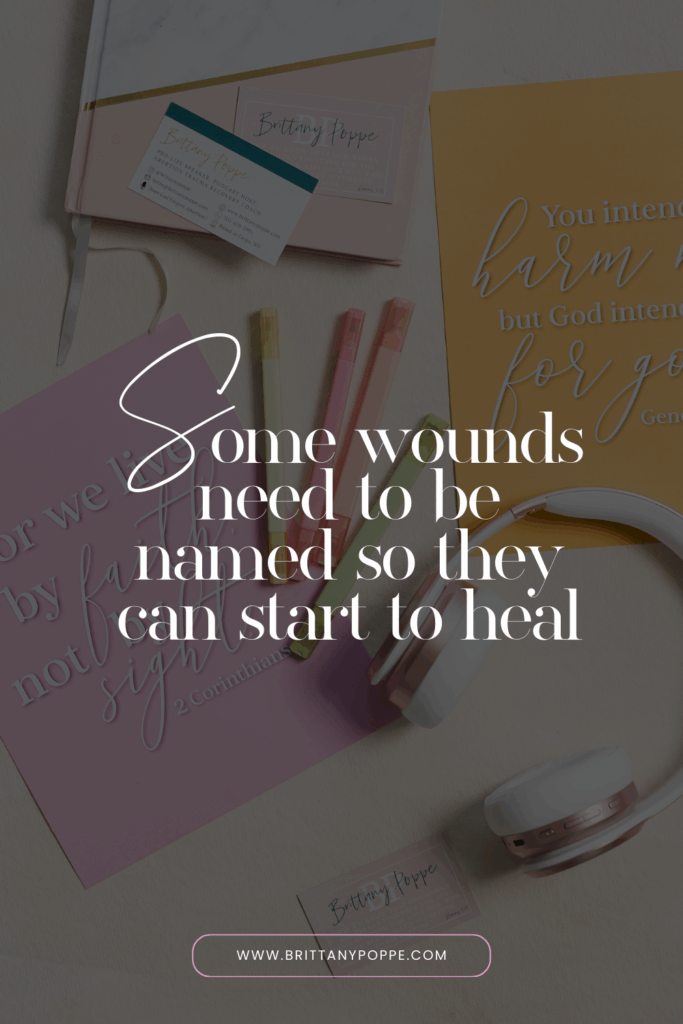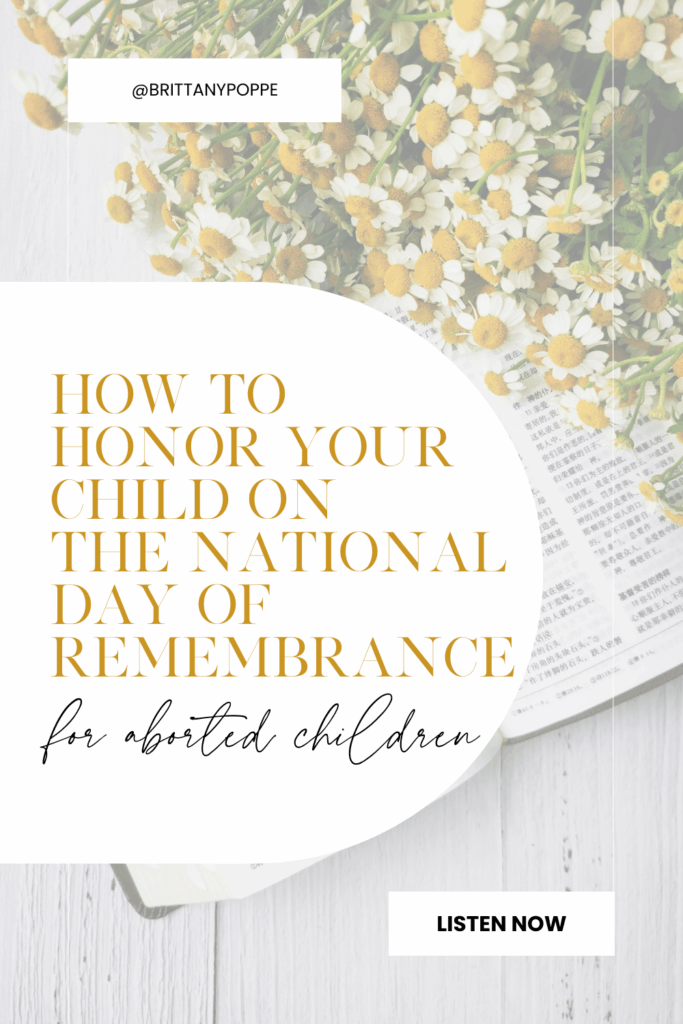Have you been searching for a way to honor your child — one that feels safe, sacred, and healing? You’re not alone. For many women who have experienced abortion, the tradition of grief, remembrance, and closure never arrived. But there is a space and a moment carved out for remembrance — a holy invitation to grieve, reflect, and find healing.
Every second Saturday in September, communities across America gather on the National Day of Remembrance for Aborted Children. This year, that falls on September 13th — a day you can lean into intentionally. It’s not about guilt or condemnation; it’s about recognizing the life you created, inviting God into the grief, and discovering freedom from shame.

Why This Day Matters
- Naming the Reality of Grief
When we lose someone — a grandmother, a cousin, a lifelong friend — there are natural rhythms to our grief: we gather, we mourn, we celebrate life, and we begin to heal. I recently walked through the sudden loss of my cousin. The days felt foggy, unsettled, and heavy, but the act of gathering, praising God for her life, and naming our pain were remarkably healing. They didn’t erase the grief, but they gave space for closure, community, and peace.
In contrast, post-abortive women often don’t get that healing structure. We bury our grief, carry complex emotions of shame or guilt, and lack any formal place to remember or mourn. The National Day of Remembrance offers a beautiful opportunity to step into that structure — but in a way that feels safe and accessible. - Creating a Sacred Pause
Remembering is not the same as dwelling or remaining stuck. Instead, it’s a sacred pause — a holy interruption to invite God into what has been painful, a chance to linger in His presence, and an opportunity for healing. It says: “You matter. Your child mattered. Your grief matters.” - Hope Beyond Grief
If you’re wondering whether this process will open old wounds and make things worse, hear this: some wounds need to be named so they can start to heal. Gathering, even privately, gives you agency over your grief, permission to feel, and a healing pathway instead of shame spiraling.
Three Ways You Can Choose to Remember
You don’t have to do everything — the most important choice is: what feels safe and possible for you right now?
1. Attend a Memorial Service
- What to do: Many cities and communities host services or gather at memorial sites dedicated to children lost to abortion.
- Why it’s healing: Gathering in a public or communal context, even if small, can help you feel less alone, see others who understand, and mark the day in a deliberate and honorable way. If you’re hesitant — that’s normal. You don’t need to share your story unless you want to.
- How to start: Typically, the National Day of Remembrance website or partner organizations post local event listings in the weeks leading up to the day. You could search by state or city, choose a nearby memorial, and plan to go if you feel called. Even simply being present, breathing prayerfully, offering a quiet prayer — that is enough.
2. Hold a Private Commemoration
If a public gathering feels overwhelming, you can create your own sacred space in the comfort of home, on a morning walk, or in a quiet corner of your day.
- Ideas for practice:
- Light a candle and sit in silence or listen to worship music.
- Write a letter to your child, expressing sorrow, love, or even questions — whatever’s real in your heart.
- Go for a prayer walk, speak out loud or silently: “God, I bring this grief. I bring my longing. I bring my love.”
- Set aside a moment of reflection, maybe 15–30 minutes in the morning or evening, and allow yourself to name grief, love, loss, and hope.
- Why it matters: This intentional pause can become a turning point. It’s not about having every answer; it’s about allowing your heart space to grieve, to face reality, and to invite God’s presence into the process. Vulnerability is strength.
3. Serve in Their Memory
- What to consider: If you’re in a season with energy and willingness, you might choose to serve in memory of your child by volunteering or donating to an organization that supports pregnant women, children, or families. This could include local pregnancy resource centers, homeless shelters, or parenting-support organizations.
- Why it’s transformative:
- Action rooted in purpose gives grief direction. It says: “Your child’s life continues to matter in the world through love and service.”
- Serving others often invites God’s presence in tangible ways and reminds us that resurrection and redemption are not only theological truths — they are lived realities in serving others.
- It transforms a day of loss into a day of redemptive impact, where you can offer hope to another, and in turn receive grace for yourself.
- How to begin:
- Make a short list of local organizations aligned with your values (maybe those offering pregnancy support or family resources).
- Reach out in advance to ask if it’s possible to serve or donate in honor — and let them know you’d like to dedicate your service or gift as a personal act of remembrance.

Biblical and Spiritual Grounding
- God holds our grief. Scripture is full of images of God meeting people in their grief, walking alongside them in desert places, sitting with them in weeping. You are not walking alone.
- Our children are known by God. Even if you never got to hold them, they are beloved, created, and known by the Father.
- Redemption is at work. Healing is not linear or perfect — but every step toward naming loss, every intentional choice to remember, and every act of service in their memory are sacred acts and holy posture before God.
You Don’t Have to Walk This Alone
If you’re wondering where to go from here, I would be honored to walk alongside you:
- You can sign up for the free Abortion Recovery Workshop here. We explore grief, forgiveness, processing story, and healing in community, offering tools and compassionate space to move forward with Jesus.
- If you’d like prayer or connection, feel free to reach out in the Facebook group and share what feels accessible for you — or to simply watch and listen as others share their own journeys.

Final Encouragement
This National Day of Remembrance doesn’t demand you to “be healed” by the end of it. It invites you to begin a rhythm — one built on honor, intention, and the hope that Jesus walks with you in grief.
You can choose one small practice, or three, or none — and still name that this day matters. If you choose to observe the day, I’d love to hear what you do in our Facebook group.
You are seen. You are loved. Your child is known. And there is room for healing, in time and in community, at your pace.
Pin for reading later ⬇️


View comments
+ Leave a comment